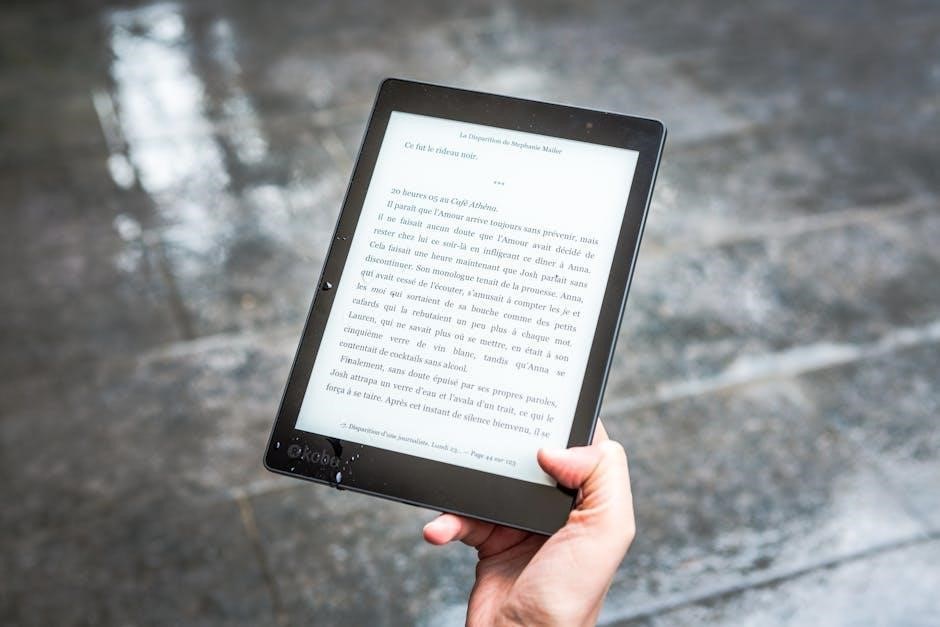Converting PDF to MSCZ enables users to transform sheet music into an editable format compatible with MuseScore, enhancing collaboration and creativity for musicians and composers worldwide.

What is MSCZ?
The MSCZ file format is the default compressed file type used by MuseScore, a popular music notation software. It stores musical scores, including notes, tempo, dynamics, and layout information, in a compact form. The MSCZ format is designed to be lightweight while retaining all the necessary details for editing and playback. MuseScore also offers an uncompressed format, MSCX, primarily for debugging or version control. The MSCZ file is essentially a ZIP archive containing an XML file that represents the score. This format is widely supported by other music notation programs, such as Sibelius and Finale, making it a versatile choice for musicians and composers.
Why Convert PDF to MSCZ?
Converting PDF to MSCZ allows users to transform static sheet music into an editable and interactive format. This conversion enables musicians and composers to modify notes, adjust tempo, and customize layouts directly within MuseScore. It also facilitates collaboration, as MSCZ files can be shared and edited by multiple users. Additionally, MSCZ preserves the musical structure and formatting of the original PDF, ensuring that the score remains accurate and professional. This conversion is particularly useful for educators, students, and professionals who need to adapt or enhance existing sheet music. By converting to MSCZ, users gain access to a wide range of tools and features offered by MuseScore, making it an essential step for modern music creation and editing.

Methods for Converting PDF to MSCZ
Several methods exist to convert PDF to MSCZ, including using online converters, importing PDF into MuseScore, or manually transcribing the sheet music, making the process straightforward and efficient.
Using Online Converters
Online converters provide a quick and straightforward way to convert PDF files to MSCZ format. Platforms like ConvertHelper.net and others allow users to upload their PDF files and download them as MSCZ files. These tools are free, user-friendly, and require no installations. Simply drag and drop the PDF file, select the desired format, and initiate the conversion. The process is fast, often taking just a few seconds. Online converters are ideal for those who need a hassle-free solution without downloading additional software. They also support multiple file formats, making them versatile for various musical needs. This method is perfect for musicians and composers seeking a quick turnaround without compromising on quality.
Importing PDF into MuseScore

Importing a PDF into MuseScore is a seamless process that allows users to convert sheet music into an editable format. By launching MuseScore and selecting File > Import > PDF, users are directed to a dedicated website for uploading their PDF file. Once uploaded, MuseScore processes the file and converts it into an MSCZ format, which can then be edited, played back, and shared. This feature is particularly useful for those who prefer working within the MuseScore environment, as it eliminates the need for external software. The imported score retains musical notation details, enabling users to make adjustments and enhancements effortlessly. This method is both time-efficient and user-friendly, catering to musicians and composers seeking precise control over their sheet music.
Manual Transcription
Manual transcription involves manually inputting sheet music from a PDF into MuseScore to create an MSCZ file. This method is ideal when automated tools fail due to poor PDF quality or complex layouts. Users open the PDF alongside MuseScore, meticulously entering each note, rest, and symbol using MuseScore’s notation tools. While time-consuming, manual transcription ensures high accuracy, especially for intricate scores. It also allows for immediate edits and familiarity with MuseScore’s interface. This approach is particularly useful for musicians who prefer precise control or need to preserve specific details from the original sheet music. Despite its labor-intensive nature, manual transcription remains a reliable fallback for achieving professional results.

Benefits of PDF to MSCZ Conversion
Converting PDF to MSCZ provides editable sheet music, enabling users to modify and enhance compositions. It also facilitates seamless collaboration among musicians and composers by ensuring compatibility with MuseScore.
Editable Sheet Music
Converting PDF to MSCZ allows users to transform static sheet music into an editable format. The MSCZ file, MuseScore’s native format, enables users to modify notes, rhythms, and other musical elements. This feature is particularly useful for musicians and composers who need to adjust or enhance existing compositions. Tools like SmartScore can scan PDF files and convert them into MusicXML, which can then be imported into MuseScore for further editing. Once in MSCZ, users can rearrange parts, change instruments, or add annotations, making it ideal for creating custom arrangements or educational materials. This flexibility ensures that sheet music remains dynamic and adaptable for various musical needs.
Enhanced Collaboration

Converting PDF to MSCZ significantly enhances collaboration among musicians and composers. The MSCZ format allows multiple users to edit and annotate the same file, fostering teamwork and creativity. By importing PDF files into MuseScore, collaborators can share and modify sheet music seamlessly. Tools like SmartScore and MuseScore’s import feature enable easy conversion, ensuring that all team members can work with the same editable format. This process supports real-time feedback and version control, making it ideal for joint projects. Enhanced collaboration is further facilitated by the ability to export MSCZ files to other formats, ensuring compatibility across different music notation software. This streamlined workflow simplifies communication and accelerates the creation of high-quality musical content.

Challenges in PDF to MSCZ Conversion
Challenges include file corruption risks and formatting issues, often requiring manual adjustments to maintain musical accuracy and structural integrity during the conversion process.
File Corruption Risks
Converting PDF to MSCZ can result in file corruption, especially if the conversion process is flawed or the original PDF is damaged. Corruption often occurs due to incompatible formats or errors during the transfer of musical data. This can lead to incomplete or distorted scores, rendering the MSCZ file unusable. Additionally, if the conversion tool lacks proper optical character recognition (OCR) capabilities, it may misinterpret musical notation, causing further issues. To mitigate this, users should ensure they use reliable conversion tools and verify the integrity of the PDF before conversion. Regular backups and validation of the output files are also recommended to prevent data loss and ensure a smooth workflow.
Formatting Issues
Formatting issues are common when converting PDF to MSCZ, particularly with complex layouts or scanned sheet music. The PDF format often lacks structural data, making it difficult for conversion tools to accurately interpret musical elements like notes, dynamics, and articulations. This can result in misaligned staves, incorrect clefs, or misplaced symbols in the MSCZ file. Additionally, fonts and spacing may not transfer seamlessly, requiring manual adjustments. These issues are exacerbated when using low-quality PDF scans or basic conversion tools. To address this, users can employ advanced OCR software or manually refine the MSCZ file post-conversion to ensure the final output matches the original composition’s intent and appearance.

Tools and Resources for Conversion
Various tools facilitate PDF to MSCZ conversion, including online converters, MuseScore’s import feature, and SmartScore for scanned PDFs. These tools enable accurate conversion of sheet music for editing in MuseScore.
Online Conversion Tools
Online converters provide a convenient solution for converting PDF to MSCZ. Websites like Converthelper.net allow users to upload PDF files and download them as MSCZ files, enabling easy editing in MuseScore. These tools often support multiple formats and offer quick conversion with minimal effort. Some platforms even provide advanced features, such as layout adjustments or format standardization. For musicians and educators, these online tools are a time-saving option to transform sheet music into an editable format. However, the quality of the conversion may depend on the clarity of the original PDF. Using high-quality scans ensures better results when converting to MSCZ for further customization and collaboration.
SmartScore and Other Software
SmartScore is a powerful tool that converts scanned or PDF image files into MusicXML format, which can then be imported into MuseScore. This software uses Optical Music Recognition (OMR) to accurately interpret musical notation, making it a reliable option for complex scores. Additionally, other apps like Scanscore offer similar functionality, converting PDF files into formats compatible with MuseScore and other music notation software. These tools are invaluable for musicians and educators seeking to edit or arrange sheet music. While they streamline the conversion process, some manual adjustments may still be necessary to ensure accuracy. These software solutions bridge the gap between static PDF files and the editable MSCZ format, enhancing workflow and creativity.
MuseScore Features
MuseScore offers robust features that simplify the process of converting and editing sheet music. Its native support for MSCZ files allows users to import, edit, and export music notation with ease. The software includes an Import PDF feature, enabling users to upload PDF files directly for conversion into an editable format. Once imported, users can adjust page settings, margins, and layout to ensure accuracy. MuseScore also supports exporting scores to various formats, including PDF, MIDI, and MusicXML. Its user-friendly interface and powerful tools make it a preferred choice for musicians, educators, and composers. The ability to compress files into the MSCZ format reduces storage needs while maintaining quality, making it ideal for sharing and collaboration.

Best Practices for Conversion
For optimal results, ensure your PDF is high-quality and clear. Use MuseScore’s built-in import feature for PDF to MSCZ conversion. Verify the integrity of the converted file and compare it to the original to catch any discrepancies. Consider preprocessing the PDF to enhance quality before conversion. Test the conversion with a small section first to gauge accuracy. Stay updated with new features and tools that may simplify the process. Always maintain backups of your files to prevent data loss. By following these steps, you can achieve accurate and reliable conversions, ensuring your musical scores are preserved and editable for future use.

Preparing Your PDF
Ensuring your PDF is properly prepared is crucial for a smooth MSCZ conversion. Start by using high-quality, high-resolution scans or vector-based PDFs for optimal results. Avoid low-quality or rasterized images, as they may lead to blurry or distorted output. Edit your PDF to correct alignment issues, remove unwanted elements, and ensure proper margins. Use tools like Adobe Acrobat for precise adjustments. Verify that fonts are embedded to maintain formatting consistency. If your PDF is scanned or image-based, consider using OCR (Optical Character Recognition) to extract text and music notation. Finally, validate your PDF by opening it in a viewer to check for errors or inconsistencies before proceeding with the conversion process.
Exporting Tips
When exporting your PDF to MSCZ, ensure you select the correct format in MuseScore’s export settings. Choose Export to PDF for high-quality sheet music. Adjust page settings like margins and layout stretch in MuseScore to maintain proper formatting. For compatibility, export as MusicXML first, then import into MuseScore. Verify that all elements, such as lyrics and dynamics, are preserved. Avoid using low-quality PDFs to prevent blurry or distorted output. If using OCR tools, double-check for accuracy. Finally, review the exported MSCZ file to ensure it matches your original PDF and make any necessary adjustments before sharing or further editing.
